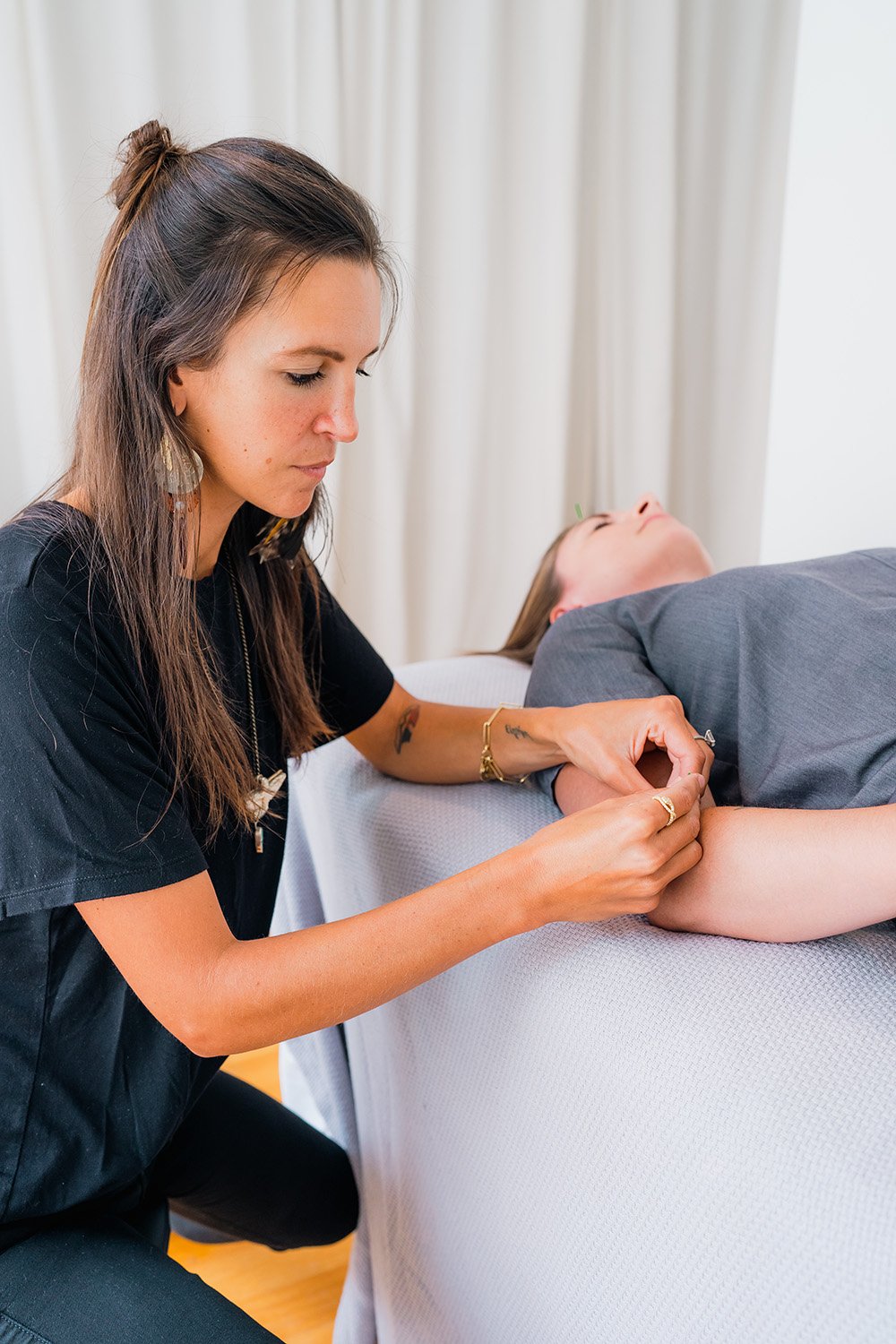
Frequently asked questions about acupuncture
What is acupuncture?
Acupuncture involves the insertion of very thin needles, to various depths through the patient’s skin, at specific points on the body.
Based on the concept that a vital energy called Qi (“chee”) travels along 14 main pathways, illness or pain occurs when this energy flow is blocked or weakened.
Stimulating acupuncture points along the meridian restores the balance in the body, helping to relieve symptoms and promote wellness.
-
Common conditions treated include:
Adverse reactions to radiation/chemotherapy
Allergies
Cosmetic Acupuncture
Depression & anxiety
Dysmenorrhea (period pain/cramps)
Fertility (male & female)
Headaches/migraines
Induction of labor & breech presentation
Insomnia
All Pain conditions: dentistry, facial, back, knee, shoulder, sciatica, neck, etc.
Morning sickness/nausea & vomiting
Stress management
This is only a partial list provided by the World Health Organization, please let us know your complete health goals so we can better help you on your path to wellness.
Sources: 1. NIH, Acupuncture, Nov. 3–5, 1997, Vol. 15, No. 52. World Health Organization. Viewpoint on Acupuncture. Geneva, Switzerland: World Health Organization, 1979.
-
Acupuncture is generally deemed to be safe, regardless of your medical history or any medications you are taking. Prior to your first session, you will complete an intake form in which you’ll outline your medical history. We will then assess your needs and determine the best course of treatment.
After your session, you may experience bruising or soreness at the acupuncture sites, and those issues will typically resolve within a day or two.
What can I expect in an acupuncture session?
-
No! Acupuncture is almost always painless. The most you may feel is a slight pinch as the needle is inserted. We try our best to make you comfortable during your session and some patients actually fall asleep during their session.
-
Your first acupuncture treatment, you should expect to talk in depth about your entire health history. Then a physical exam will be performed by checking your tongue, pulse, abdomen and necessary orthopedic tests. Following the diagnosis, we will prescribe and administer the treatment protocol that will work best for you.
Once the needles are inserted, calming music, dim lights and a heat lamp will keep you relaxed as you rest for about 30 minutes. At then end of the treatment, depending on your issues we might use other techniques such as cupping, moxa or nutritional guidelines to help on your pathway to wellness.
-
Comfortable, loose-fitting clothes are best. After the needles are inserted, you will typically need to rest while the effects of the acupuncture take place, so it’s important that you are comfortable.

“Health is a state of complete physical, mental and social wellbeing and not merely the absence of disease.”
—World Health Organization
Do you accept health insurance?
-
Many health insurances have acupuncture benefits. To find out if you have acupuncture coverage, it is best to call your insurance company before booking an appointment with us, but we will verify your coverage.
-
Currently we accept: Always, Aetna, Blue Cross Blue Shield, Harvard Pilgrim
-
If you don’t see your insurance provider on the list, but you know you have coverage, after payment has been rendered, we can give you something called a Superbill that you can submit yourself for reimbursement.
-
Yes! We accept all HSA and FSA payments!

Wondering if acupuncture treatment is right for you?
Contact us at 617-602-3868 to learn more about our services, or book an appointment online.



